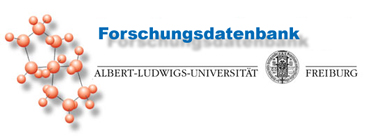| [Zurück zum Forschungsbericht] |
 |

Systems Immunology
Projektbeschreibung:T cell activation relies on the activation of the TCR and information processing inside the T cell. The aims of this project is to develop robust models for T-cell activation based on integrating quantitative data on this central biological process. Thereby, this project will increase our understanding of the T-cell activation process and this will have a strong impact in the fight against infectious diseases, cancer and autoimmune diseases. Interactomics Developing a sophisticated quantitative proteomics approach to study elements in the TCR signalosome, we have identified a number of new proteins (JI 2013, and unpublished). The mass spectrometry was done by the groups of Prof. Ruedi Aebersold, Zürich, and Prof. Oreste Acuto, Oxford. Currently, we elucidate the function of several of these novel proteins. Mathematical models Our finding that the TCR is nanoclustered led to the mathematical description of the impact of TCR nanoclusters on T cell activation. We could demonstrate that this receptor pre-clustering enhances the ability of T cells to distinguish between self and foreign peptides (Trends Immunol 2006). Thus, we could show that nanoclustering has an additional effect besides enhancing the sensitivity of the T cell (Immunol Rev 2013). The generation of accurate data on antigen-binding to the TCR, TCR phosphorylation, ZAP70 recruitment and downstream signalling allowed us to mathematically describe the first steps of T cell activation (PLoS One 2001). The modelling was done in collaboration with Prof. Thomas Höfer’s group, Heidelberg. Currently, we try to use the combined approach of experimentation and modelling to understand how the TCR is able to distinguish between self (low affinity) and foreign (high affinity) antigens. In summary, using hypothesis-driven systems biology approaches as well as quantitative proteomics techniques will allow us to obtain unprecedented insight into signaling networks that govern T cell activation.Projektlaufzeit:
Projektbeginn: 2008Projektleitung:
Projektende: (unbegrenzt)
Prof. Wolfgang SchamelAktueller Forschungsbericht
Albert-Ludwigs-Universität Freiburg
Institut für Biologie III, BIOSS Centre for Biological Signaling Studies, Centre for Chronic Immunodeficiency CCI
Molekulare Immunologie
Schänzlestraße 18
79104 Freiburg
Telefon: 0761 - 203-67511
Fax: 0761-203-97660
Email: wolfgang.schamel@biologie.uni-freiburg.de
http://www.bioss.uni-freiburg.de/cms/3623.html